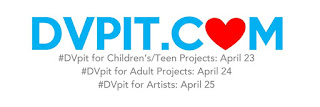Pitching has become more a part of children’s book publishing in the last decade or so, a culture change that’s led to new types of stories being sold as well as the increasing visibility social media allows to elevate new author and artist voices in online pitching events.
When we think about a log line, the quick sentence summary of your work that should start a pitch, accuracy is one thing—but just being accurate can be very misleading if you don’t craft one with care—here are some accurate log lines of well known stories:
- Transported to a surreal landscape a young girl kills the first person she meets then teams up with three strangers to kill again.
- A moody teen encouraging her boyfriend to kill her.
- A boy left to fend off robbers after his parents abandon him.
Are all accurate, but misleading! To see accurate examples of a logline, consider looking at the copyright summaries found in published books. Within those copyright summaries you’ll see there are sets of details in all of them that follow a bit of a structure:
- A when and a where
- Information about the protagonist with some fundamental descriptors
- Their goal is mentioned
- As well as the conflict to achieving that goal
You’ll also want to state in clear and simple terms the genre, tone, and demographic your story is aimed at. A good elevator pitch will share enough of a story's essential information in a logline for a potential buyer to understand why they should care about the main character’s core conflict (but keep it short! No more than 75 words).
Eddie goes on to define high and low concept ideas, watch the Zoom replay of his session especially for that golden nugget! Eddie also critiques attendees’ loglines submitted over the Zoom chat and to hear his live editing was fascinating and helpful.
A final reminder from Eddie: An elevator pitch DOES NOT MEAN pitch to someone in an elevator, in a restroom, in the dentist’s chair. You’ve only got one shot to make a first impression, learn to read the room: Editors and agents do want to hear pitches but at appropriate times and places.



